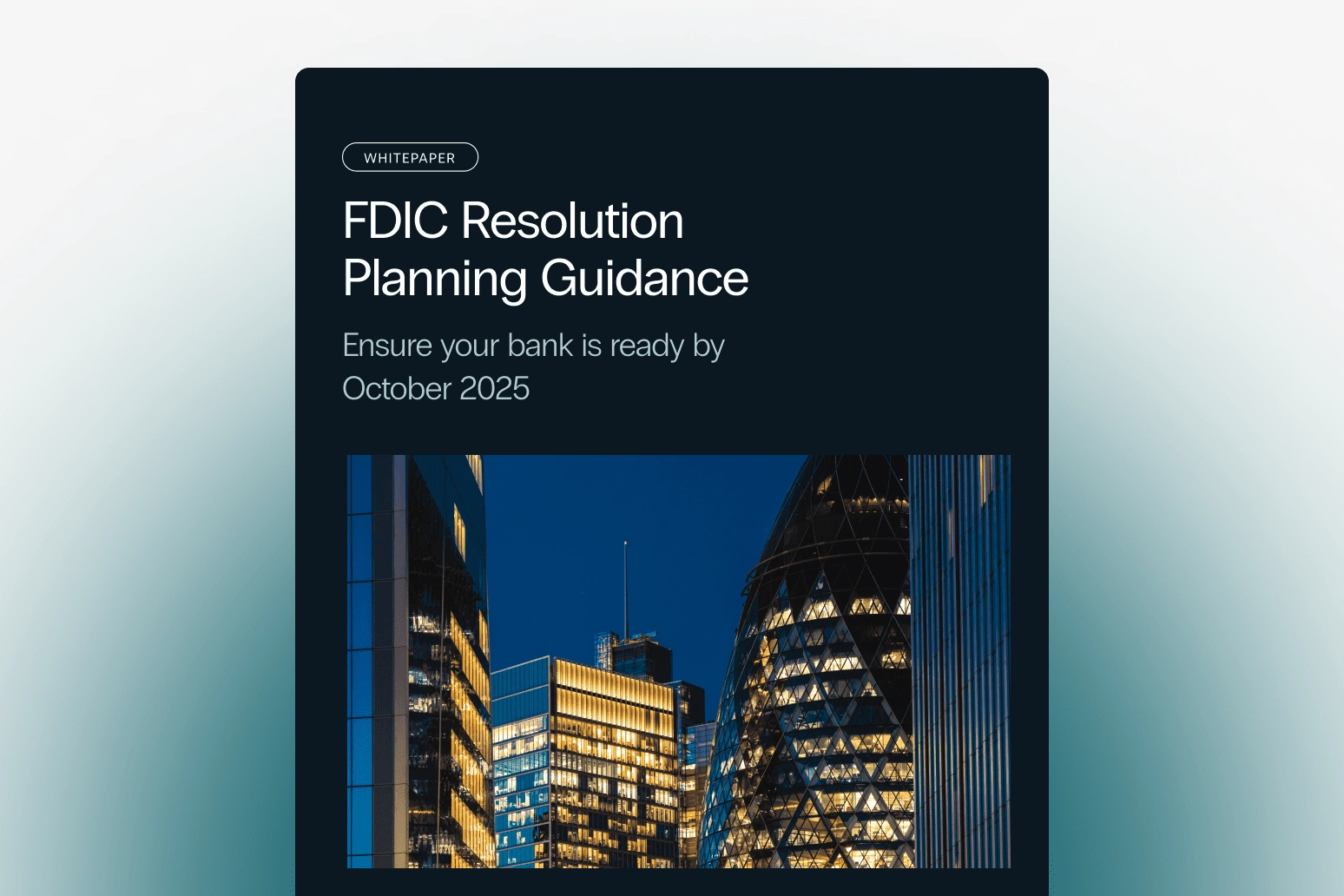What is Contract Compliance? A Practical Guide to Staying on Track

- March 18, 2025
- 15 min read
- Arpita Chakravorty
With increasing regulatory scrutiny and evolving business obligations, organizations must adopt a strategic approach to contract compliance. Are you equipped to stay ahead?
Contract compliance ensures that all contractual obligations are met, minimizing financial loss, legal risks, and reputational damage. Without a structured compliance strategy, businesses risk falling behind. This guide outlines the key steps in contract compliance, identifies common challenges, and explores how AI-driven solutions like Sirion can simplify compliance management.
Definition of Contract Compliance and Its Benefits
Contract compliance refers to the process of ensuring that all parties involved in a contractual agreement adhere to the terms, conditions, and obligations outlined within the contract. This practice is essential for mitigating risks, maintaining financial accuracy, and ensuring legal and regulatory adherence. Effective contract compliance minimizes the likelihood of disputes, penalties, and operational disruptions, creating a framework for sustainable business relationships and accountability.
Benefits of Contract Compliance
Implementing a robust contract compliance strategy offers several advantages, including:
- Risk Mitigation – Reduces exposure to financial, legal, and operational risks associated with contract breaches.
- Regulatory Adherence – Ensures compliance with industry standards and government regulations such as GDPR, DORA, ISDA, and ESG.
- Financial Accuracy – Helps prevent revenue leakage, billing errors, and payment discrepancies by ensuring financial terms are correctly enforced.
- Operational Efficiency – Streamlines contract management processes, reducing administrative burdens and improving execution timelines.
- Improved Vendor and Partner Relations – Establishes transparency and trust by holding all parties accountable to agreed-upon terms.
- Stronger Audit Readiness – Enhances an organization’s ability to meet audit requirements with well-documented compliance tracking and reporting.
- Enhanced Decision-Making – Provides insights into contract performance, enabling data-driven improvements and strategic business decisions.
By prioritizing contract compliance, businesses can safeguard their operations, foster stronger relationships, and drive overall efficiency and profitability.
The Contract Compliance Process: How It Works
Managing contract compliance isn’t just about ticking boxes; it requires a structured approach. A well-defined process ensures that contracts are enforced effectively, mitigating risks and maximizing value. Here’s how it typically works:
- Contract Review and Understanding
- Before execution, all stakeholders must thoroughly review the contract to understand their obligations.
- Key terms, deadlines, penalties, and performance expectations should be clearly defined.
- Monitoring and Tracking Obligations
- Compliance teams or contract managers monitor deliverables, milestones, and payment schedules.
- Automated alerts can help organizations stay ahead of deadlines and obligations.
- Regular Audits and Performance Evaluations
- Contract compliance audits ensure that contractual terms are being followed correctly.
- These audits help identify discrepancies, gaps, or potential areas of risk.
- Reporting and Documentation
- Contract compliance reporting involves documenting compliance status, identifying risks, and sharing insights with stakeholders.
- Well-maintained records help protect against legal issues and improve decision-making.
- Issue Resolution and Enforcement
- If a party fails to meet contractual obligations, corrective action must be taken.
- Escalation processes should be in place to resolve issues efficiently.
Risks of Contract Non-Compliance
Failure to adhere to contract terms can result in significant consequences for businesses. Non-compliance introduces financial, legal, and operational risks that can disrupt business continuity and damage an organization’s reputation. Below are some of the primary risks associated with contract non-compliance:
- Financial Penalties & Revenue Loss – Breaching contractual obligations can lead to costly penalties, missed payments, and potential loss of business revenue.
- Legal Consequences & Litigation – Non-compliance can result in lawsuits, regulatory fines, and contract disputes that may tarnish an organization’s credibility.
- Operational Disruptions – Failure to meet contractual deadlines and deliverables can impact supply chains, vendor relationships, and business operations.
- Reputational Damage – Breaching contracts can erode trust with partners, customers, and regulatory bodies, making it difficult to secure future business opportunities.
- Regulatory Violations – Organizations that fail to comply with industry-specific regulations (e.g., GDPR, DORA, ISDA) may face audits, fines, and potential restrictions on business operations.
- Data Security Risks – Poor contract compliance in data handling agreements can expose businesses to cyber threats, breaches, and non-compliance with privacy laws.
Proactively managing contract compliance with automated tools, regular audits, and structured oversight can help mitigate these risks and safeguard business operations.
Your Contract Compliance Checklist: Strategies, Best Practices, and Key Areas to Get It Right
A well-structured contract compliance checklist acts as a safeguard against risks, ensuring all obligations are met and standards upheld. Each element in the checklist plays a critical role in maintaining compliance. Here’s what to focus on:
- Contract Scope & Obligations – Clearly define responsibilities for all parties, ensuring contract terms align with agreed-upon expectations.
- Regulatory Compliance – Stay up to date with legal and industry regulations to avoid penalties and reputational risks.
- Payment & Financial Terms – Verify that invoices, payments, and penalties are accurately tracked and processed according to the contract.
- Performance Metrics – Measure contract performance against predefined KPIs to ensure service levels and deliverables are being met.
- Renewals & Expirations – Keep track of contract expiration dates to avoid service disruptions and ensure timely renewals.
- Risk Management – Identify and mitigate potential risks such as contract breaches, missed deadlines, and financial penalties.
By leveraging a structured checklist, organizations can proactively manage compliance, avoid costly errors, and ensure smooth contract execution.
Importance of Contract Compliance Audits: Why They Are Essential for Business Success
Contract compliance audits act as a safeguard against financial, legal, and operational risks by systematically reviewing contracts to ensure adherence to agreed terms. They help organizations catch issues early, avoid costly disputes, and optimize contract performance. Here’s why they are essential:
- Identify Breaches Early – Spot contract violations before they result in penalties or damage business relationships.
- Verify Financial Accuracy – Ensure that payments, penalties, and invoices align with the agreed contract terms, reducing financial discrepancies.
- Evaluate Vendor and Service Performance – Monitor whether suppliers and service providers are delivering as promised, helping maintain high standards and accountability.
- Enhance Operational Efficiency – Uncover inefficiencies in contract execution and recommend improvements for a more streamlined compliance process.
By conducting regular audits, businesses can shift from a reactive to a proactive compliance approach, ensuring that contract obligations are continuously met and risks are minimized.
Navigating Regulatory Compliance Requirements
Regulatory frameworks set the foundation for contract compliance, requiring organizations to adhere to industry-specific and legal obligations. Key compliance mandates include:
- Digital Operational Resilience Act (DORA) – Financial entities and ICT providers must ensure compliance with DORA’s stringent contract and risk management requirements to maintain operational resilience.
- Dodd-Frank Act – Financial institutions must ensure transparent contract management to mitigate systemic risks and regulatory scrutiny.
- Sarbanes-Oxley Act (SOX) – Organizations must maintain accurate financial reporting and contract compliance to avoid penalties.
- General Data Protection Regulation (GDPR) – Contracts involving personal data must comply with strict privacy and security requirements.
- Federal Acquisition Regulation (FAR) – Government contractors must follow detailed compliance guidelines to avoid contract breaches.
Staying compliant requires a combination of structured policies, continuous monitoring, and advanced contract lifecycle management tools.
The Biggest Obstacles to Contract Compliance (And How to Overcome Them)
Contract compliance can be a complex and resource-intensive process. Without the right systems in place, organizations may struggle to meet their contractual obligations efficiently. Below are some of the most common challenges and why they matter:
- Time-Consuming Manual Processes – Relying on spreadsheets or paper-based systems makes tracking contract compliance slow and inefficient. Human errors, missed deadlines, and incomplete records can lead to financial and legal risks.
- Limited Visibility Into Contracts – When contracts are stored in multiple locations or managed inconsistently, businesses lose visibility into compliance obligations, making it difficult to enforce terms and avoid breaches.
- Keeping Up with Changing Regulations – Laws and industry standards evolve frequently, and organizations must ensure their contracts remain compliant. Failure to do so can lead to fines, lawsuits, and reputational damage.
- Inconsistent and Inaccurate Reporting – Without automated reporting tools, gathering and analyzing contract data can be cumbersome. Inaccurate reports make it harder to track compliance progress and identify risks early.
- Poor Collaboration Between Departments – Legal, procurement, finance, and operations teams often manage contracts independently. Without seamless communication and shared oversight, misalignment can lead to compliance failures.
Fortunately, modern Contract Lifecycle Management (CLM) systems can address these challenges by centralizing contract data, automating tracking and reporting, and ensuring compliance is enforced across all departments.
Unlocking Efficiency: How Contract Compliance Tools Simplify Management
Managing contract compliance manually can be overwhelming. To reduce administrative burdens and improve accuracy, organizations rely on specialized contract compliance tools. These solutions automate key processes, minimize risks, and ensure adherence to contractual obligations. Here’s how they help:
- Automated Alerts – Reminders for key deadlines and obligations.
- Centralized Contract Repository – A single source for all contracts, reducing fragmentation.
- Data Analytics & Reporting – Insights into contract performance and risks.
- Audit Trails – Documentation of all contract interactions for compliance and legal protection.
- AI-Powered Compliance Monitoring – Identifies risks and flags non-compliance early.
By implementing contract compliance tools, organizations can eliminate inefficiencies, reduce human error, and ensure all contractual terms are met in a timely and structured manner.
The Contract Compliance Specialist: Your Organization’s Compliance Guardian
A contract compliance specialist serves as the bridge between legal, finance, and operations teams, ensuring that all contractual obligations are met. Their role is critical in preventing compliance breaches and mitigating financial risks. Key responsibilities include:
- Reviewing and monitoring contract terms.
- Conducting compliance audits.
- Implementing reporting frameworks.
- Coordinating with legal and finance teams to enforce compliance.
- Identifying risks and ensuring corrective actions.
With a dedicated compliance specialist, businesses can proactively manage contract-related risks, maintain regulatory compliance, and optimize contract performance.
Sirion: Enabling Intelligent Contract Compliance & Regulatory Readiness
For organizations seeking a seamless, technology-driven approach to contract compliance, Sirion offers a cutting-edge solution. Its AI-native contract lifecycle management platform transforms compliance management by automating key processes, reducing risks, and improving overall efficiency.
With evolving regulatory frameworks such as the Digital Operational Resilience Act (DORA), International Swaps and Derivatives Association (ISDA) compliance, and Environmental, Social, and Governance (ESG) requirements, organizations must proactively manage risks, streamline reporting, and ensure contract compliance. Sirion simplifies regulatory compliance by:
- Centralizing contract data for easy access and regulatory reporting.
- Automating compliance monitoring to track obligations in real time.
- Enhancing third-party risk management by integrating with ICT providers and ensuring regulatory alignment.
- Improving audit readiness with pre-built dashboards and reporting
- Leveraging AskSirion AI to quickly identify compliance gaps and address them across the contract portfolio.
- Providing rapid audit response by enabling instant access to the necessary contract data.
- Ensuring continuous compliance with automated alerts and reminders for DORA, ISDA, and ESG obligations, keeping organizations audit-ready across multiple regulatory frameworks.
- Simplifying regulatory reporting through pre-built dashboards and templates for streamlined compliance tracking.
By leveraging Sirion’s advanced capabilities, businesses can move beyond reactive compliance measures and adopt a proactive, data-driven approach to managing contracts efficiently and securely.
The Bottom Line: Why Contract Compliance Can’t Be Ignored
Contract compliance is essential for operational efficiency, financial accuracy, and legal protection. While managing compliance can be complex, structured processes, checklists, audits, and the right technology can make it seamless.
By leveraging tools like Sirion, organizations can automate compliance monitoring, enhance visibility, and reduce risks. In an increasingly regulated business environment, ensuring contract compliance is no longer optional—it’s a necessity.


